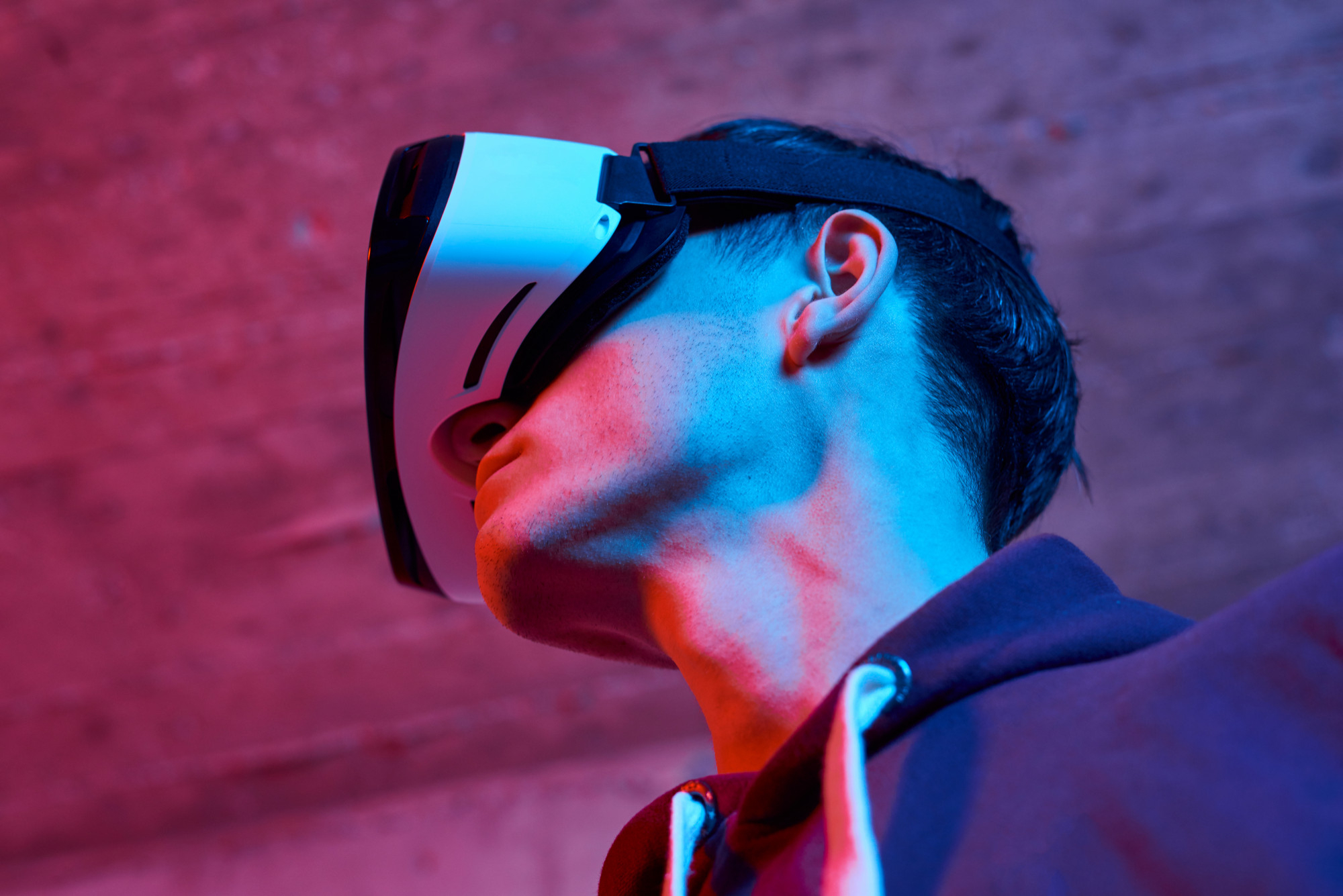Metaverse: Immersive and Innovative Business Opportunities

Metaverse: Immersive and Innovative Business Opportunities
June 6, 2024
The concept of the metaverse has captured the attention of companies and consumers around the world with the promise of transforming the way we interact, work, and consume.
This immersive virtual universe, where physical and digital realities merge through virtual reality (VR) and augmented reality (AR), is opening new frontiers for immersive and innovative businesses.
Metaverse: The Future of Digital Connection
The concept of a metaverse is far from a novel idea. Straight out of the pages of science fiction books, digital worlds with avatars have long been imagined as authentic replicas of the real world.
From futuristic utopia to reality, the metaverse is a universe that converges physical and digital reality, where users can interact through avatars in highly immersive three-dimensional environments. This digital space uses advanced technologies such as virtual reality and augmented reality to create interactive experiences that go far beyond the limitations of the physical world.
In this world, people can socialise, work, learn, play and shop in an interconnected digital simulation. “The future of digital connection”, the metaverse offers new opportunities for entertainment, education and commerce, creating an environment where creativity and technology meet to transform the way we live and interact.
Immersive Business in the Metaverse
The metaverse has become a buzzword on the technology scene and a long-term plan for several companies. Considered the “big step in the technology industry”, until then virtual reality was only known for its gaming applications. The turning point came with Mark Zuckerberg’s bold bet in 2021, when he decided to invest in the metaverse and change the name of his company to Meta. Since then, this vast virtual world has been captivating various sectors.
Virtual Shopping Experiences
One of the most promising areas of the metaverse is e-commerce. With the use of this virtual world, virtual shops take a step forward in the shopping experience. Consumers are now able to explore products in a three-dimensional environment, interact with sales assistant avatars, and try on items virtually before buying them.
Brands such as Gucci and Nike are already investing in virtual shops and exclusive digital items for avatars, creating a new dimension of personalization for their customers.
Advertising and marketing
In the metaverse, advertising and marketing strategies can be completely transformed. Brands can create immersive experiences that captivate users in previously unimaginable ways: virtual events, concerts, product launches in a digital environment, and personalized interactions with avatars.
What’s more, collecting detailed data on user interactions allows companies to personalize their strategies more precisely, providing a stronger emotional connection with the target audience.
Education & Training
The metaverse has the potential to revolutionize education by providing a highly immersive and interactive learning experience. Virtual reality (VR) and augmented reality (AR) make it possible to create virtual educational environments where students can explore historical environments such as museums, carry out scientific experiments, or perform complex simulations that would be dangerous in the real world.
Companies, meanwhile, can use VR technologies for corporate training by simulating real work situations in a safe and controlled environment. This innovative approach not only increases employee effectiveness but also reduces the logistical costs associated with face-to-face training.
E-Commerce in the Metaverse
The metaverse is redefining the shopping experience by transporting consumers to virtual shops where they can interact with products and sellers in an immersive and realistic way.
Personalization and User Experience
Personalization in the metaverse goes beyond simply recommending products. Within these digital environments, customers can try on clothes and accessories virtually and explore product catalogues in detail, creating personalized shopping experiences according to their preferences and behaviour.
Digital Goods Market
E-commerce in the metaverse is not limited to physical goods – the market for digital goods, such as virtual clothing and accessories for avatars and digital real estate, is growing rapidly. Platforms like Decentraland and The Sandbox are proof of this trend, offering virtual land and digital assets that can be bought, sold, and developed.
Payments and cryptocurrencies
With the digital economy booming, cryptocurrencies play a crucial role in the metaverse. With blockchain technology, transactions become more secure and agile and allow users to buy virtual goods and services without geographical barriers.
Immersive Business, Robust Technological Infrastructure
The creation and maintenance of a fully functional metaverse depends on a robust and sophisticated technological infrastructure. This includes high-performance servers capable of supporting millions of simultaneous users, high-speed internet networks to guarantee stable and fast connections, and cutting-edge technology such as VR, AR and blockchain to provide realistic and advanced virtual environments.
Faced with the complexity and scale of these operations, many companies end up choosing to invest in strategic partnerships with IT consultancy firms capable of building the necessary infrastructure to ensure that the metaverse is accessible, secure, and capable of satisfying user demand.
From e-commerce to education, the metaverse represents a new era of immersive and innovative business opportunities. Betting on innovation and leading the wave of digital transformation is opening new horizons – talk to us to start a successful project!